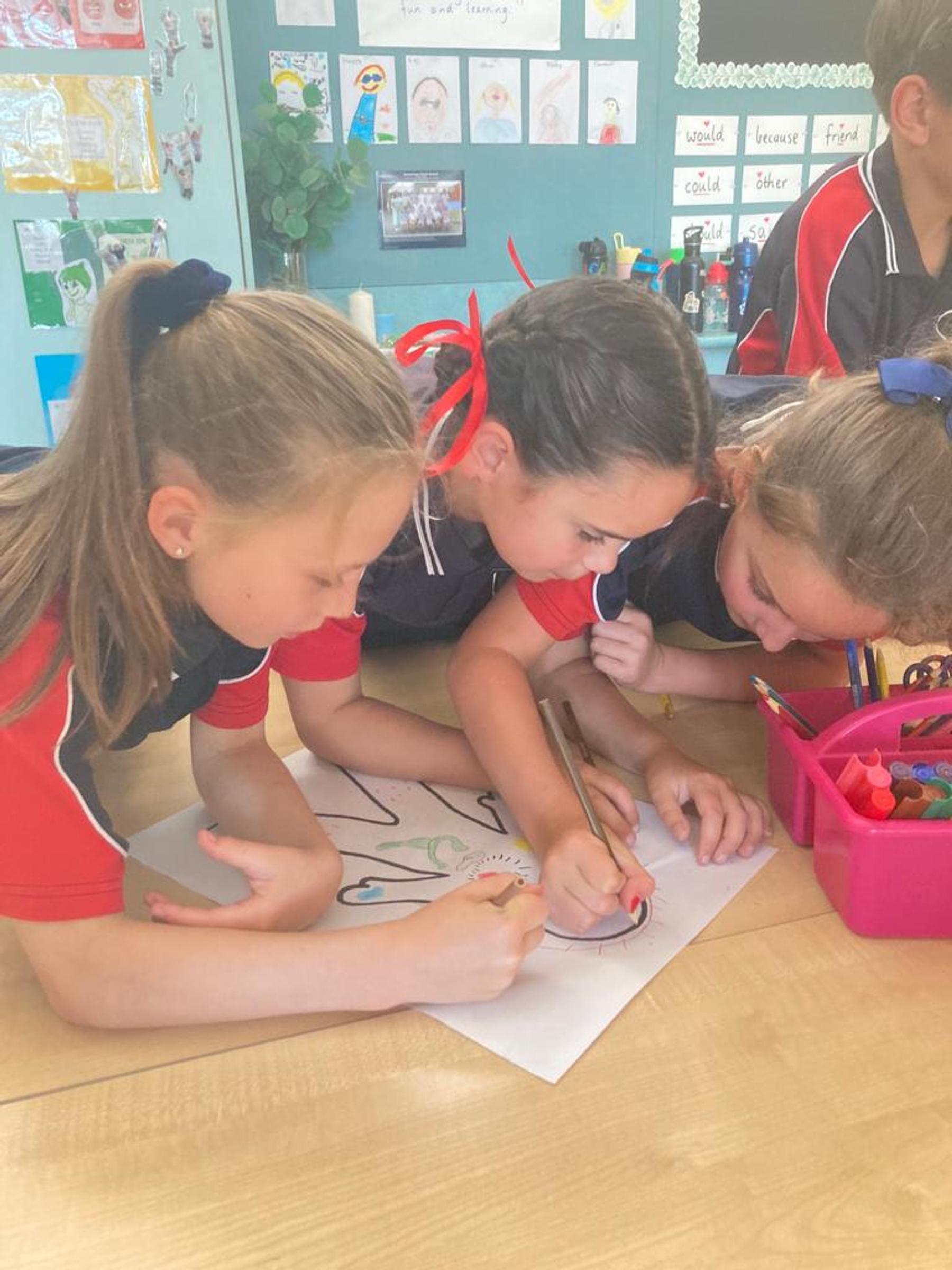Wellbeing
Respectful Relationships and Berry Street Program

Wellbeing
Respectful Relationships and Berry Street Program
Respectful Relationships learning materials have been designed for teachers in primary and secondary schools to develop students' social, emotional and positive relationship skills. Efforts to promote social and emotional skills and positive gender norms in children and young people has been shown to improve health related outcomes and subjective wellbeing. It also reduces antisocial behaviours including engagement in gender-related violence.
The Respectful Relationships program covers eight topics of Social and Emotional Learning across all levels of primary and secondary education:
-Emotional Literacy
-Personal strengths
-Positive Coping
-Problem Solving
- Stress Management
-Help Seeking
-Gender and Identity
- Positive Gender Relationships.
The first week of the school year, Sacred Heart students actively participated in engaging an "get to know you" activities with their teachers and classmates in their class and across the level as part of the Respectful Relationships program, spanning across all year levels and specialist classes. From icebreaker games to reflective sharing sessions, these activities were designed not only to familiarise students with their teachers and peers but also to emphasise the values of empathy, communication, and understanding within the school community. The inclusive and supportive learning environment cultivated through these lessons set the stage for a positive and respectful atmosphere throughout the school year, highlighting the significance of fostering meaningful connections as integral components of the Sacred Heart educational experience.
Part of Respectful Relationships and our Berry Street Program is building the student/teacher relationship. Research has found that positive teacher-student relationships are linked to increased cognitive, behavioural and emotional engagement in learning and increased academic achievement.
To look after our loved ones, we need to start by looking after ourselves. And according to parenting expert Lael Stone, that means looking back and showing compassion to our younger selves.
https://open.spotify.com/episode/0F4gzJHSBGqYdBY4Giw3is?si=E-mXTuM6TUiaEQWAvdXN6g
Talking to your child in the car ride home or walk is a very important part of the school day. When engaging in conversations with children after school, it's essential to ask insightful questions that encourage them to share their experiences and to try and stay away from the one of two negative things that is bound to happen in anyone's day and our brain has an ability to make it the only thing.
Encouraging discussions about enjoyable moments, achievements, or things they're looking forward to can uplift the conversation and provide a well-rounded view of their school life and make them look forward to their next day. This approach helps maintain a positive atmosphere and helps with the love of coming to school and creating life long learners.
"What was the best part of your day?"
Encouraging your child to focus on the highlights of their day helps them reflect on positive experiences, whether it's a fun activity, a successful moment in class, or an enjoyable interaction with friends.
"Did anything make you feel proud today?"
This question prompts your child to reflect on their accomplishments, fostering self-confidence and emphasising the value of their achievements, big or small.
"Who did you spend most of your time with today?
Inquiring about their social interactions allows your child to share about friendships, group activities, or moments that brought them joy, reinforcing the importance of social connections.
"Is there something new or interesting you learned today?"
Encouraging your child to share newfound knowledge or exciting discoveries from school promotes a love for learning and highlights their intellectual growth.
"What are you excited about for tomorrow?"
This question helps your child look forward to the next day, encouraging positivity and anticipation for upcoming activities, classes, or events, fostering a sense of enthusiasm and optimism.
Asking these positive and open-ended questions can spark meaningful conversations, allowing your child to share their experiences and feelings in a supportive and encouraging environment.
Simon Brown - Wellbeing Leader